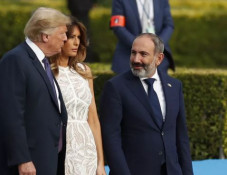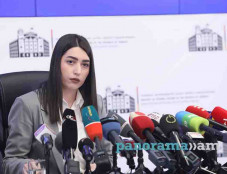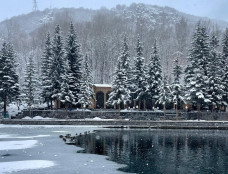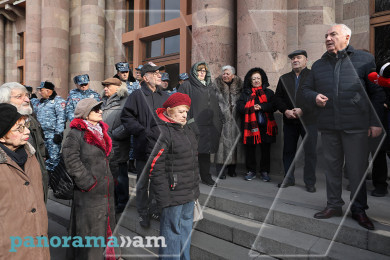
USAID: Civil Society sustainability index significantly worsened in Azerbaijan during 2015
Non-governmental organizations in Azerbaijan operate in highly restrictive environments. They have limited access to funding—both foreign and local. Overall, theCivil Society sustainability index has significantly worsened during 2015, according to the USAID CSO Sustainability Index-2015.
According to the report, an unprecedented crackdown on NGOs in Azerbaijan intensified in 2015. The government adopted a number of new rulesand regulations that restrict access to funding, and the continuing harassment of NGO leaders led to suspension of their works.
Critical voiceswere systematically silenced by the Azerbaijani authorities through investigations, interrogations, travel bans, andfreezing of bank accounts.
According to the report, political freedoms also continued to be highly restricted in Azerbaijan in 2015.Azerbaijan still has many political prisoners, and the human rights situation deteriorated drastically during a year. Press freedom leaves much to desirein Azerbaijan, as many independent journalists are arrested on trumped-up charges. Besides, the government denied visas to representatives of foreignmass media outlets thatplanned to come to the country to cover the inaugural European Games in Baku.
In November 2015, Azerbaijan held parliamentary elections, which were boycotted by all the opposition parties.OSCE/ODIHR canceled its mission to observe the elections due torestrictions imposed by the Azerbaijani authorities.
As for the economic situation, the drop in oil prices resulted in the devaluation of manat, which, in its turn, weakened the banking sector.
It is noted in the report that the registration of NGOs in Azerbaijan has been a key problem for the last fifteenyears. It is highlighted that in December 2014, the Venice Commission of the CoE recommended that Azerbaijan reconsider itsregistration practices for NGOs, create conditions suitable for their development;however, Azerbaijan continues to ignore the recommendations.
Currently, only a few lawyersprovidelegal support to NGOs. Most lawyers representingpolitical prisoners have been subjected to various forms of persecution and intimidation, sometimes driving them to abandon their cases. Local authorities also intimidate families of lawyers, human rights defenders,and journalists.
More than fifty local and international organizations, including OSCE, Oxfam, Counterpart International, World Vision, and Save the Children, had to completely stop their work inAzerbaijan in 2015, and the remaining NGOs have suspended their activities, as they had to allocate significant timeto fulfilling state requirements.
Meanwhile, the Caucasian Knot reports that Azerbaijani experts agree with the USAID.
“Thecivil society's activitieshavebeenparalyzedforthelasttwoandаhalf or threeyears.
The leading NGOs have faced criminal persecution, and the grant registration has been suspended. Many foreign donors have not implemented complicated procedures of their registration in Azerbaijan and ceased their work here. Unregistered NGOs have been deprived of the opportunity to work because of the recent years’ constitutional amendments. For the renewal of the NGOs' activities, it is necessary either to adopt new rules or to return the legislation to the level of 2009,”AlekserMammadli – lawyer and Civil Society Platform member – told the Caucasian Knot.
Samir Kazimli, the coordinator of the Alliance of Protection of Political Rights, also notes the restriction of opportunities for the NGOs' activities.
“We cannot even hold simple public discussions, let alone realization of grant projects. The owners of premises, including hotels, have not given conference halls to public organizations for a long time. We could go Dutch to pay the rent. However, they all refuse to give us halls for discussions. It is impossible to hold monitoring. We manage to hold small educational, research, and human rights events due to the support of volunteers, whogratuitously do their work,”Kazimli says.
The head of the public alliance Azerbaijan Without Political Prisoners, Ogtay Gulaliyev, also states the worsening of conditions for the civil society’s work.
“Because of the administrative pressureand the worsening of the legislation about the NGOs, the civil society institutions are deprived of the opportunity to perform their functions.
The lack of resourcesmakesit very difficult to hold an alternative research, estimate the effectiveness of the usage of budgetary resources by the state, and support the citizens in the protection of their social rights. Currently, the authorities are holding a referendum on ConstitutionalAmendments, whilethe NGOs do not have the opportunity to organize public discussions for clarifying the anti-democratic character of the amendments to the people,”Gulaliyev notes.
Newsfeed
Videos






























